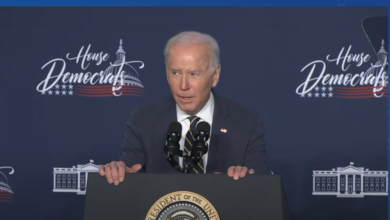Manufacturer Optimism Declines Amid Rising Inflation and Continued Supply Chain Challenges, Report Finds
As material costs increase and supply chain challenges continue to delay production, manufacturers’ optimism has declined, according to a new industry report.
58% of manufacturers rated their optimism about business prospects over the next six months at a seven or higher on a scale of one to 10 according to the latest manufacturing and distribution report by Sikich found that. At the same time last year, more than 80% of manufacturers rated their optimism at a seven or higher. And just three months ago, nearly 70% of manufacturers rated their optimism at a seven or higher.
When asked what factors have contributed to the decline in optimism, nearly one quarter (22%) of manufacturers cited inflation and economic decline. The report found that 100% of respondents said they have experienced an increase in material cost in the last 12 months, and all but 1% made the decision to pass price increases on to customers. The majority of respondents (69%) are passing 50% to 100% of increased material costs on to customers.
At the same time, demand has increased for two-thirds of manufacturers, and companies are struggling to keep up. Half of companies with revenue under $100 million reported being unable to keep up with their current demand, and 70% of respondents from companies with more than $100 million in revenue said they are unable to keep up with demand. Unsurprisingly, more than 40% of manufacturers cited supply chain challenges as the reason they cannot meet demand, while 39% cited employee shortages.
“Given current economic trends, it’s understandable that manufacturers’ optimism is declining,” said Jerry Murphy, partner-in-charge of manufacturing and distribution services at Sikich. “Yet, increased demand offers some promising news. To keep up, business leaders should diversify their material suppliers and challenge logistics providers to find ways to tighten delivery times. And, to address employee shortages, companies must revisit their talent strategies and implement comprehensive recruitment and talent development programs.”
Talent acquisition remains a struggle
Talent acquisition was the third-most common reason manufacturers cited for their decreased optimism. Further, nearly 40% of survey respondents reported employee shortages a factor contributing to challenges meeting demand.
One way to attract more talent is to offer sign-on bonuses to shift workers. Currently, only 28% of manufacturers offer sign-on bonuses, according to the Sikich report. But, of those companies, nearly half (45%) say the bonuses are helping them attract more talent. The majority of manufacturers offering sign-on bonuses are offering between $500 and $1,500, and require new hires to stay with the company for 4 to 12 weeks before receiving the bonus.
“Just as manufacturers are struggling with inflation, so are the individuals companies are trying to hire,” said Laura Fischer, a managing director on Sikich’s human capital management and payroll consulting team. “A sign-on bonus can be a useful tool for companies with hiring challenges amid the labor shortage. For example, it can help a manufacturer attract more job applicants to a role that requires high-demand skillsets. Though, in addition to implementing a sign-on bonus, manufacturers competing for talent must also prioritize their recruitment strategy, training programs and workplace culture to attract and retain top talent.”
Content created by Conservative Daily News and some content syndicated through CDN is available for re-publication without charge under the Creative Commons license. Visit our syndication page for details and requirements.




